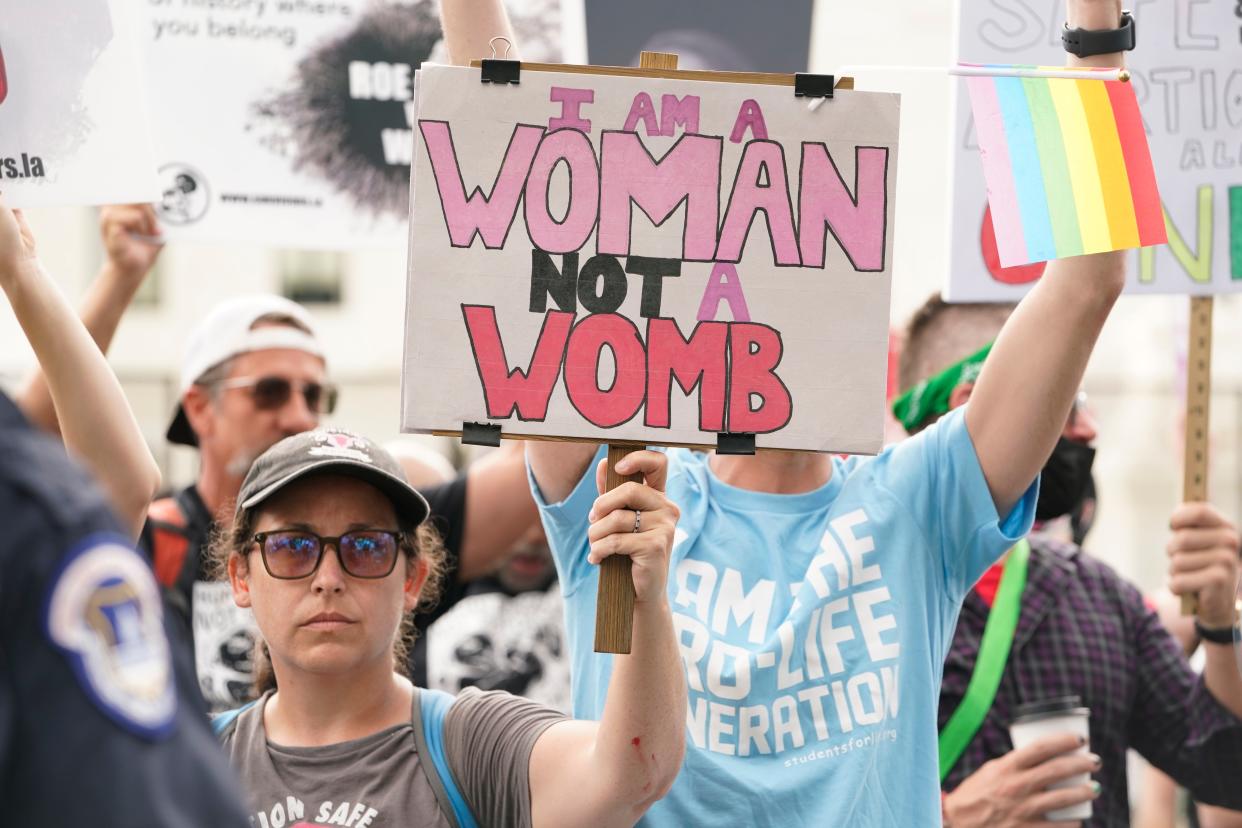Opinion: I'm the state's chief medical officer. Overturning Roe threatens public health

As a mother, I know that pregnancy can bring tremendous joy. As a doctor, I also know that pregnancy is a major life event, and one that is not necessarily without complications. For many, it is easy. For others, it is not. Pregnancy can bring grief, life-threatening complications, or long-term health issues. Every patient has unique life circumstances.
Just as people make decisions with their providers about any course of action for their health, decisions about the course of a pregnancy — including whether to become or stay pregnant — should be made by a woman with the counsel of her family, her faith and her doctor. Reproductive health care should not be dictated by the politics of the day.

The decision of the U.S. Supreme Court to overturn nearly half a century of precedent protecting safe, legal abortion violates the trusted relationship between a patient and their doctor. Physicians around the world swear an oath to “do no harm,” to protect the interests of their patients while preserving their privacy; yet this law will criminalize our efforts to honor a patient’s decision-making, their autonomy and their right to make medical decisions that take into account their unique life circumstances.
I have significant concerns about the effect Michigan’s 1931 abortion ban will have on a pregnant person’s health if it fully comes into effect. This would be our new reality:
Women who become pregnant as a result of rape or incest would be forced to carry the baby to term, after already experiencing the trauma associated with sexual assault.
History tells us that abortion bans do not stop abortion. Bans lead to more women who are likely to undergo unregulated procedures that can jeopardize their future reproductive health or even result in their death.
If women and doctors are under threat of prosecution and jail time, women who need to terminate their pregnancies for life-saving reasons will have a more difficult time accessing health care to stay alive.
Fear of prosecution could also make it more difficult for women to access care for miscarriages, adding mental and physical strain to an already heartbreaking situation.
If we let this draconian abortion ban stand — a law that brings us back to a time where people had fewer rights to make decisions about their own health — where does it end?
We must treat decisions about pregnancy and reproductive health care the same way we treat any other private health care decision. When I advise patients on receiving chemotherapy, or taking diabetes medication, or medication for high blood pressure, at the end of the day the decision is theirs to make. Decisions about abortion should be no different — they should be undertaken after careful deliberation by the individual, taking into account their unique health and social circumstances, and after consultation with a medical provider. However we personally feel about abortion, women and their doctors must be the ones to make the decision — not politicians.
SCOTUS’s ruling and Michigan’s abortion ban not only punish women seeking abortion care, and those seeking care for miscarriage and family planning; they punish health care providers and could put them behind bars for providing critical care for their patients. It casts a dark shadow over the medical community — and doctors will now be forced to choose whether to honor our oath to our patients, to our communities and to our profession, or to uphold a law that is unjust and discriminatory and does not reflect the wishes of the majority of Michigan residents.
Doctors like me have spent years of their lives learning the science and art of medicine; decades learning how to establish rapport with their patients, how to counsel them wisely using medical judgment and the best scientific data.
And now we may be forced to choose between breaking the oath we have taken on behalf of our patients versus the possibility of jail time.
Could this court decision be merely the first step that violates the trusted relationship between doctors and patients? I hate to think what could be next.
Natasha Bagdasarian is Michigan's Chief Medical Executive.
This article originally appeared on Detroit Free Press: Opinion: I'm the state's chief medical officer. Ruling in Roe threatens public health

